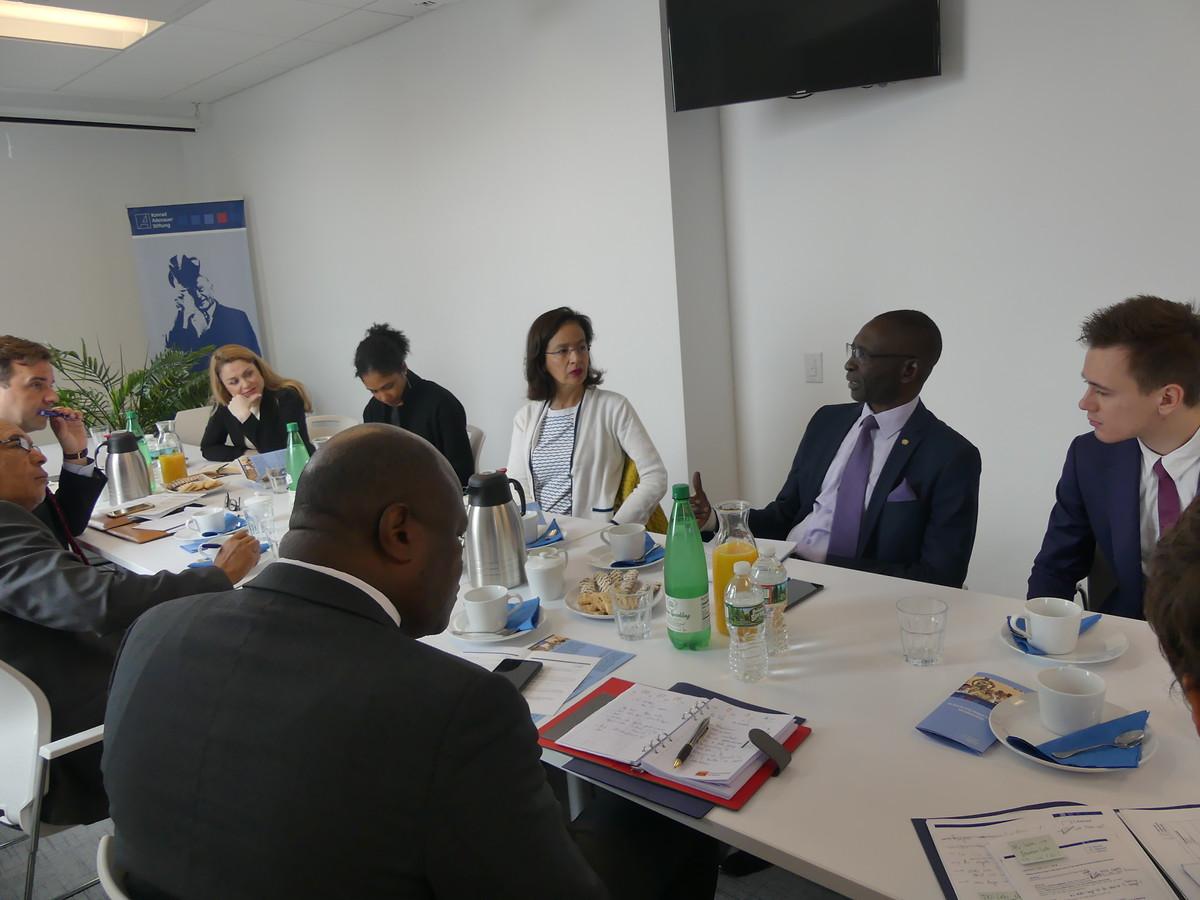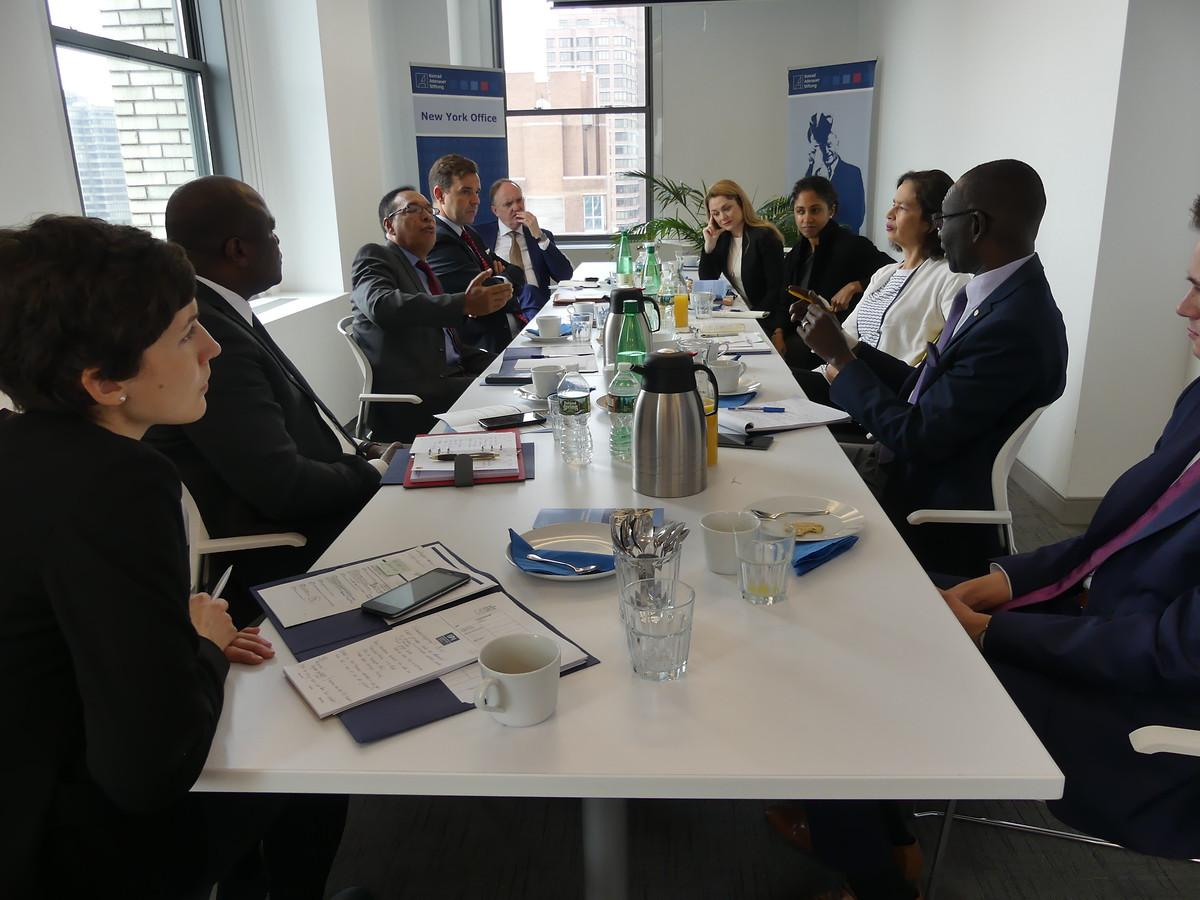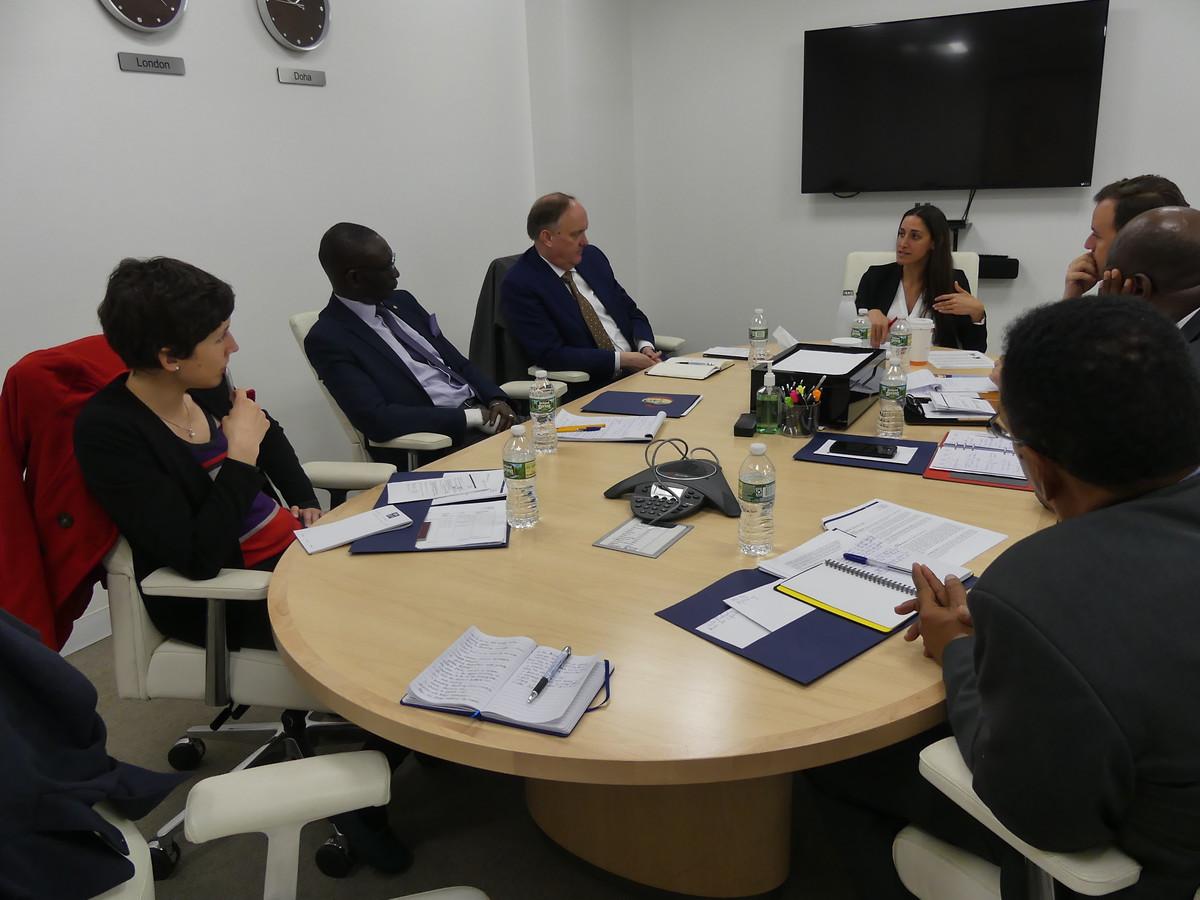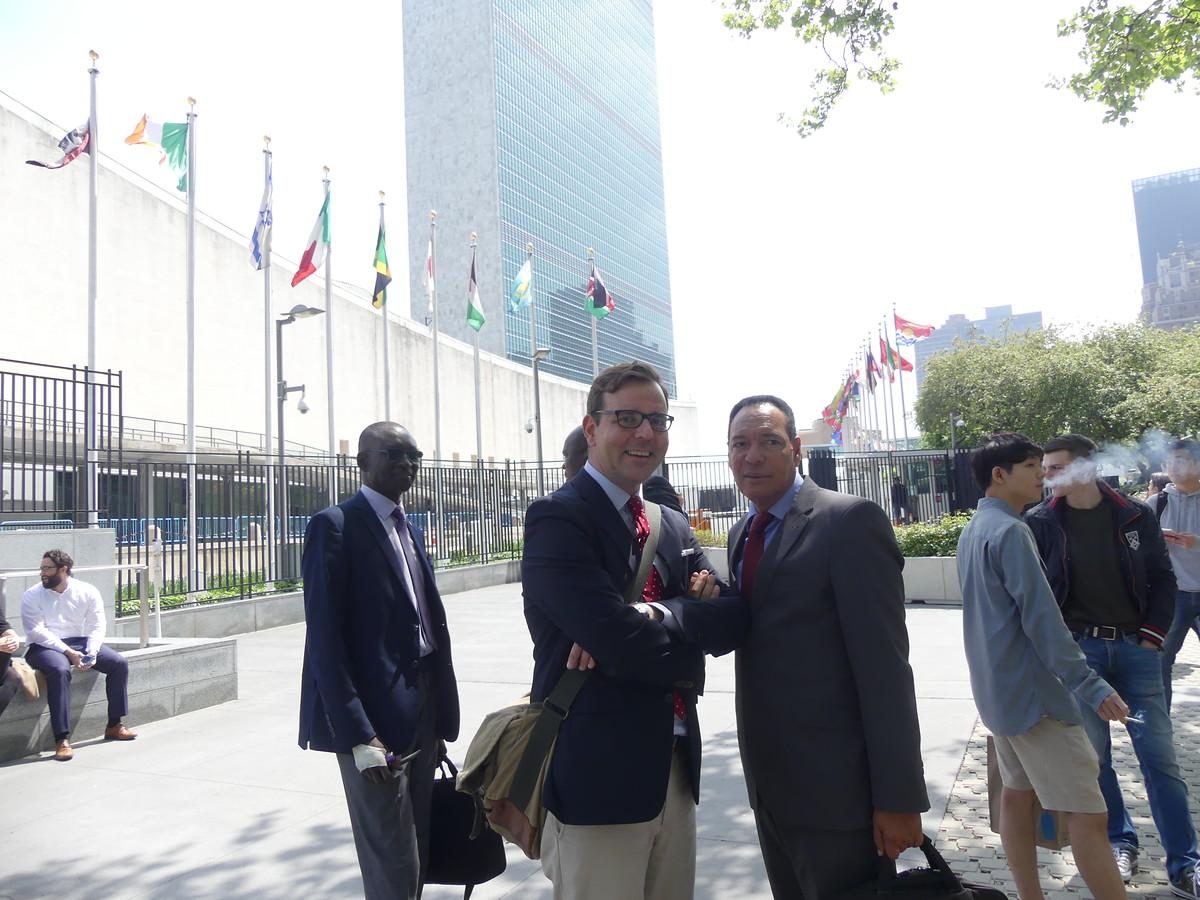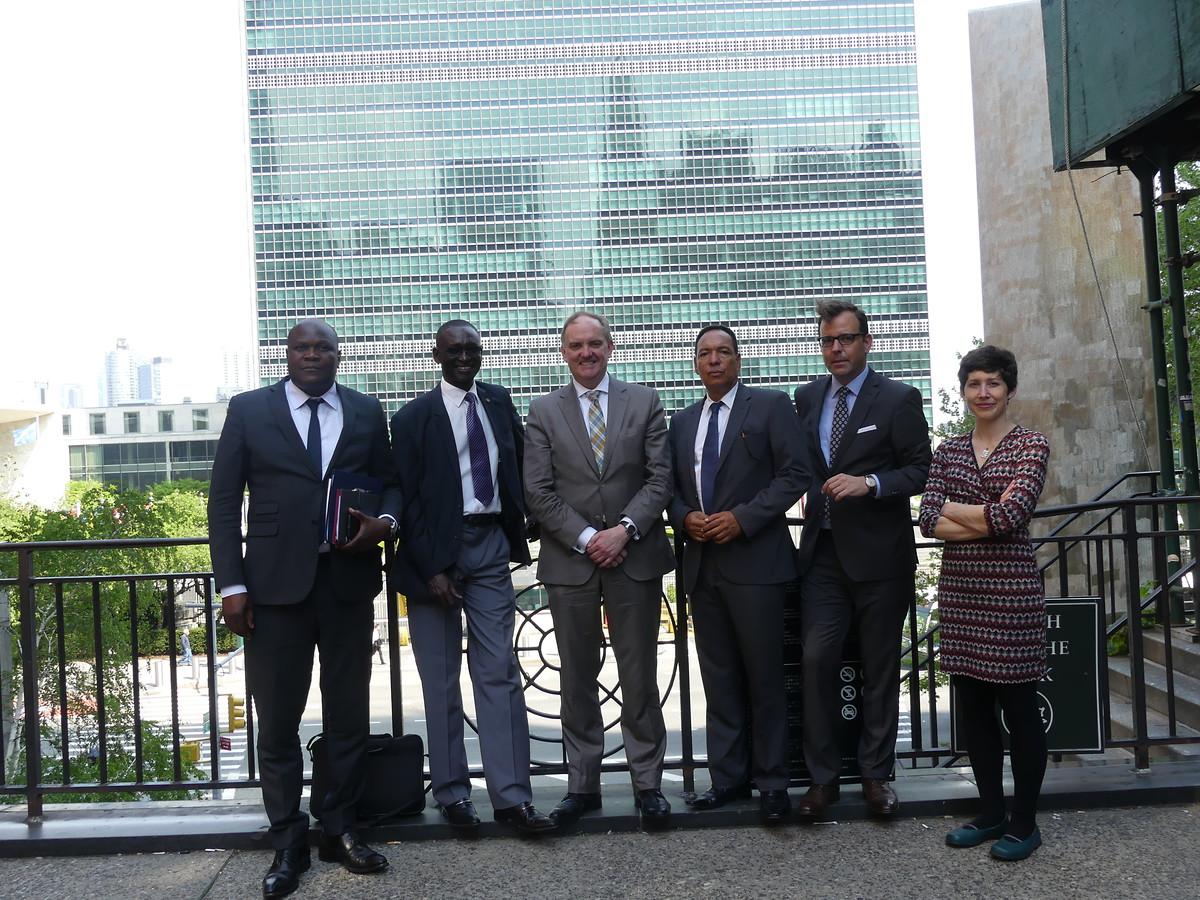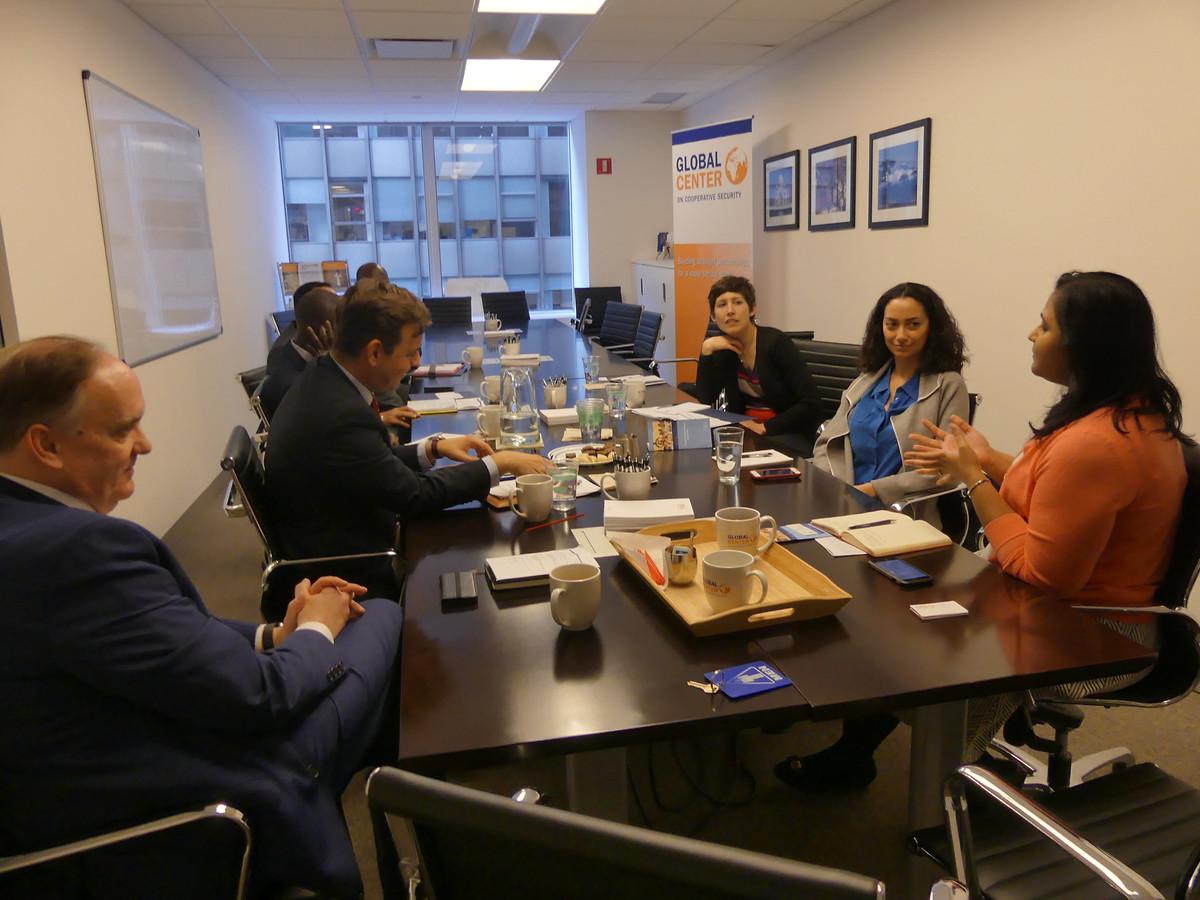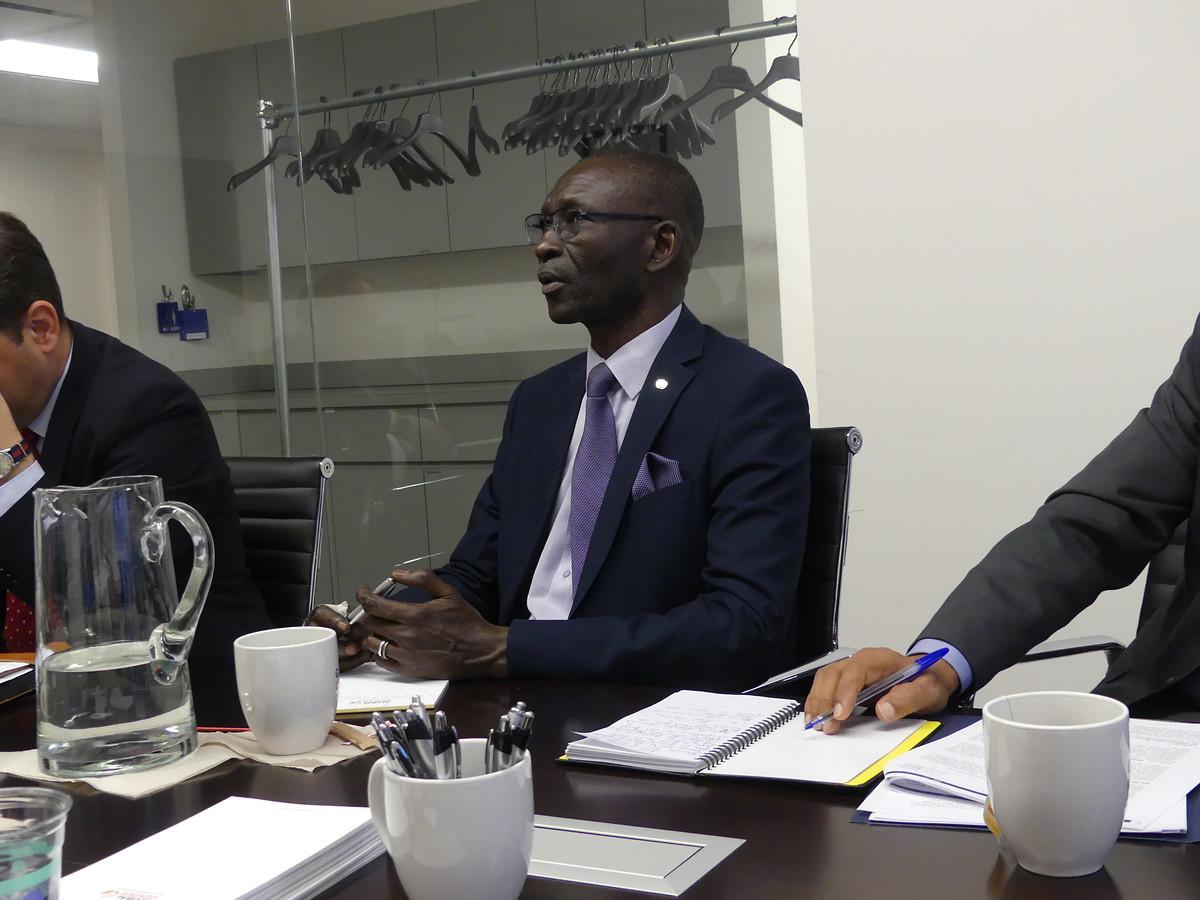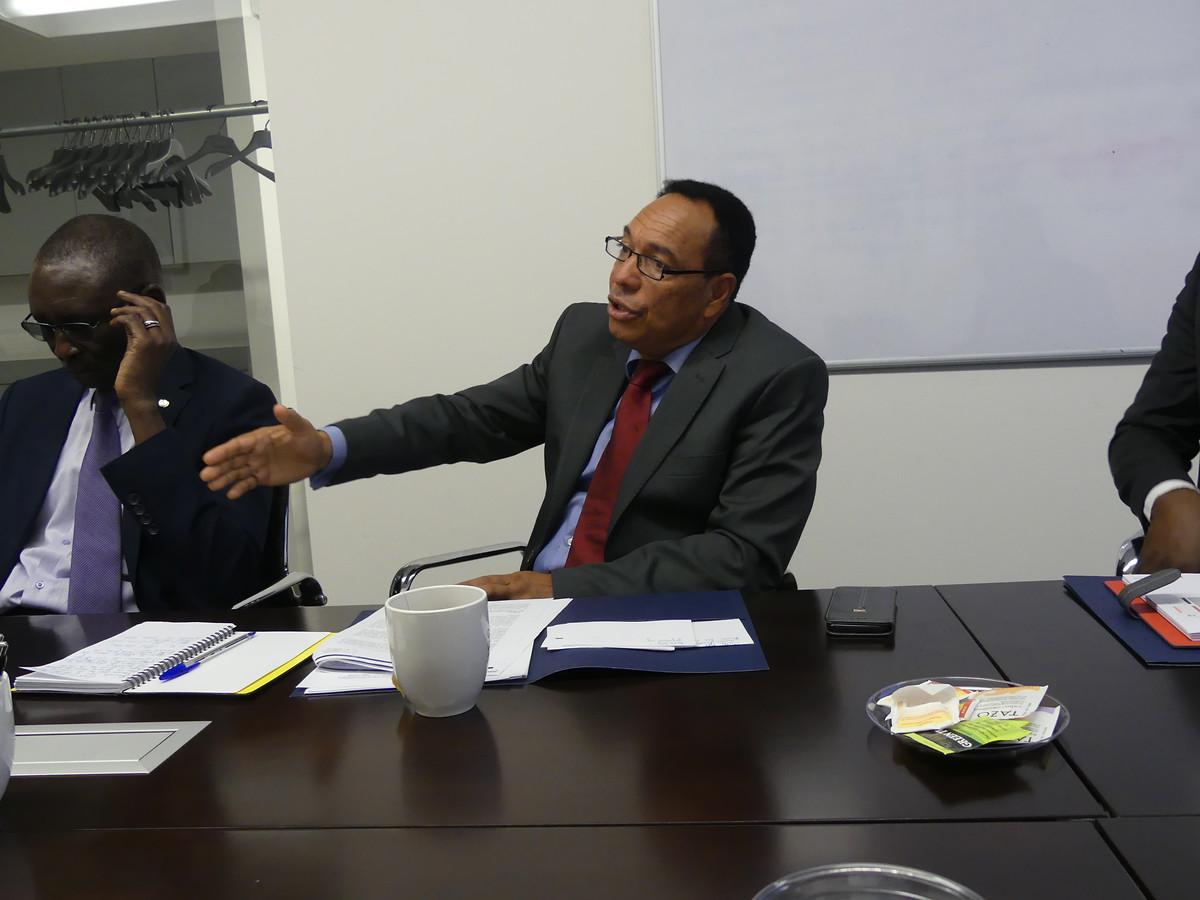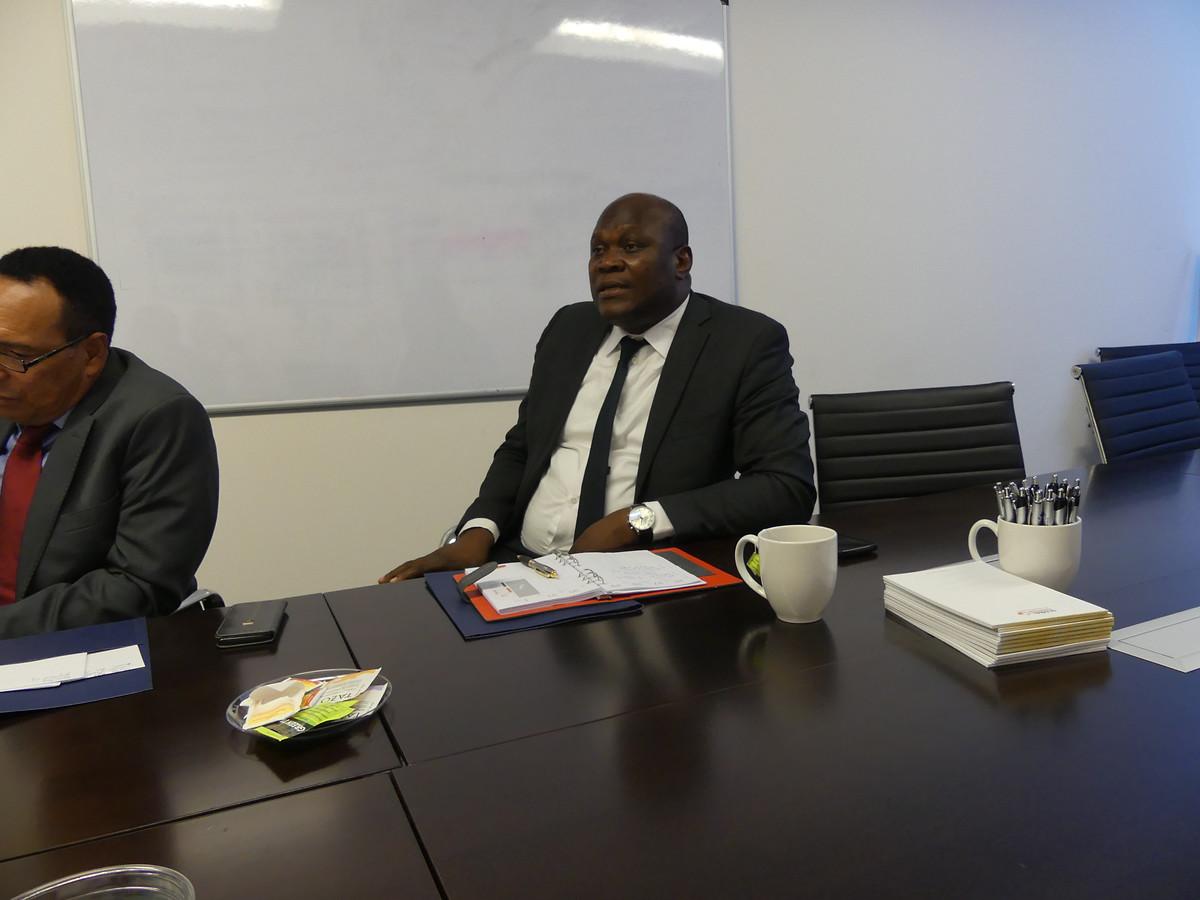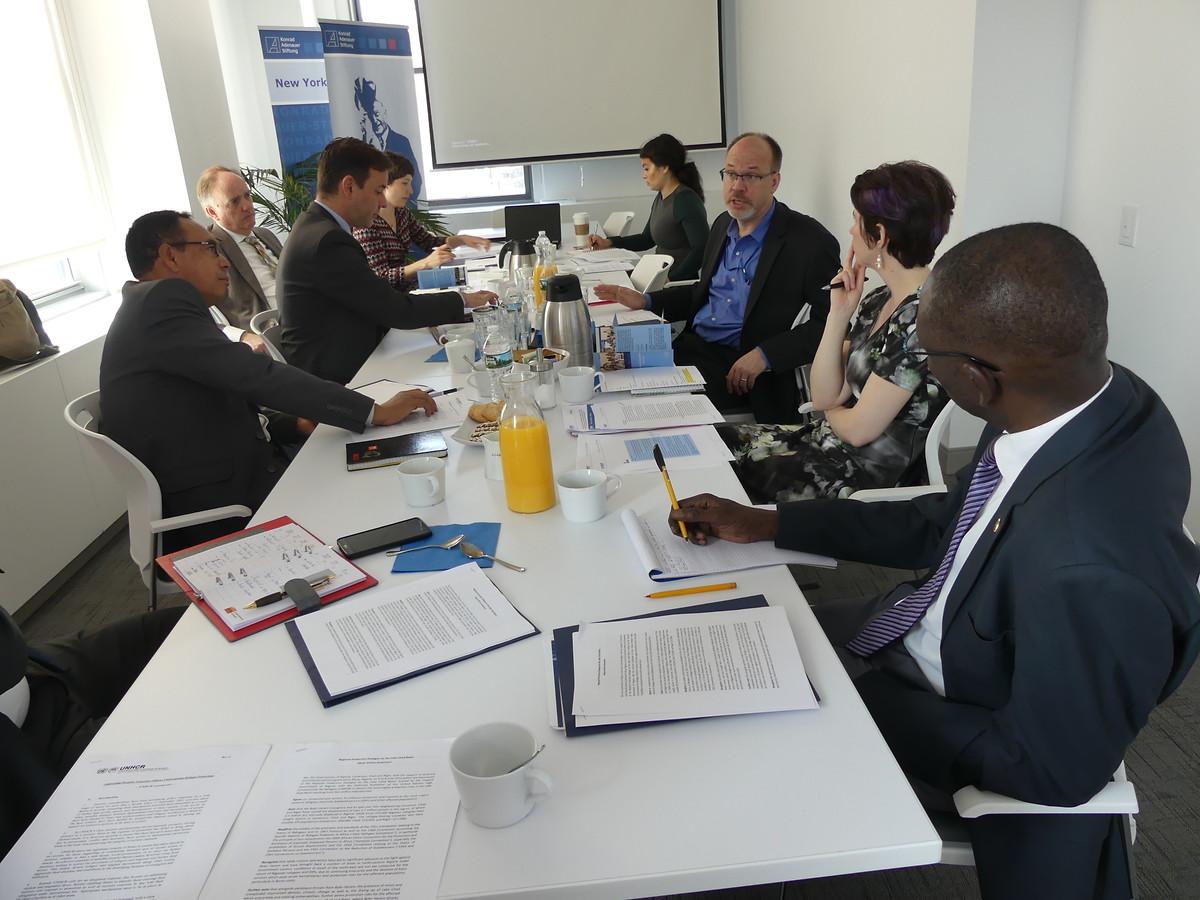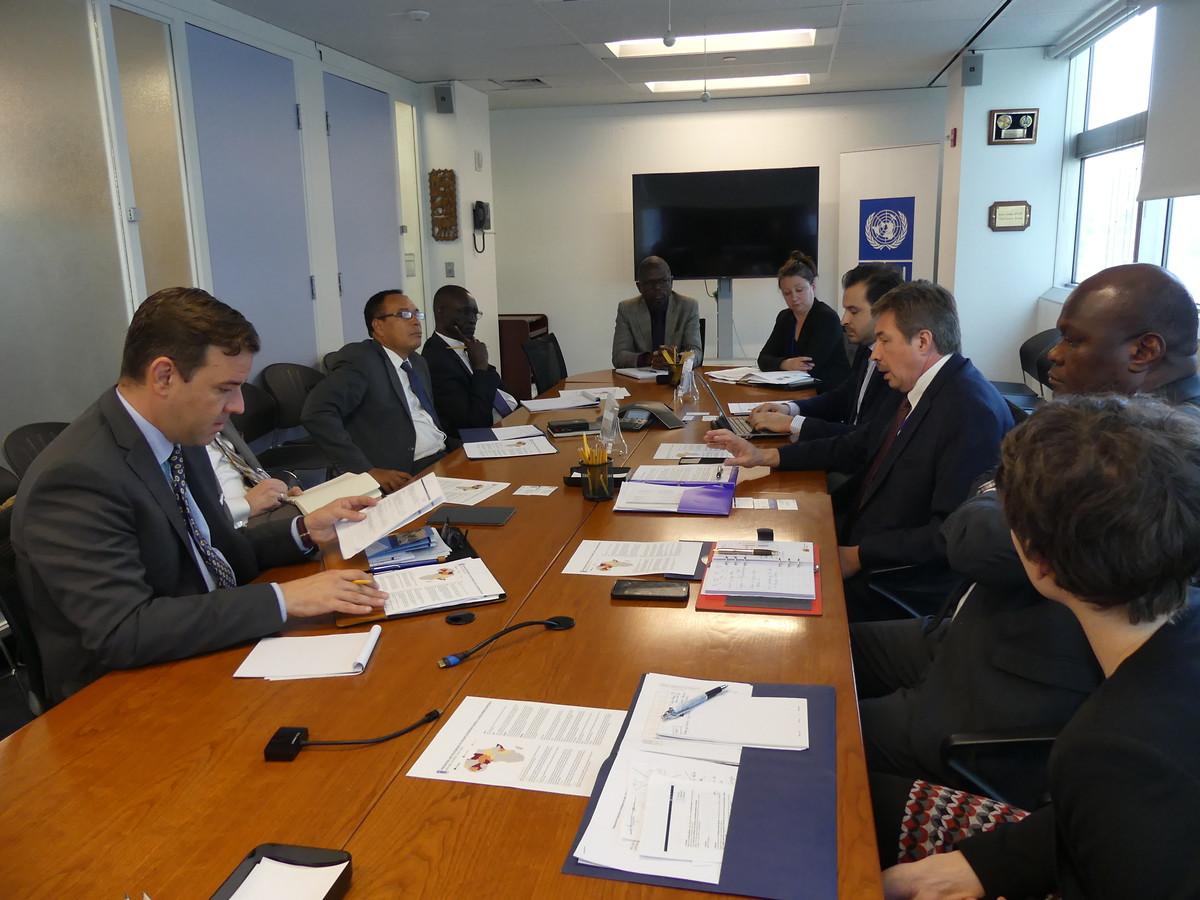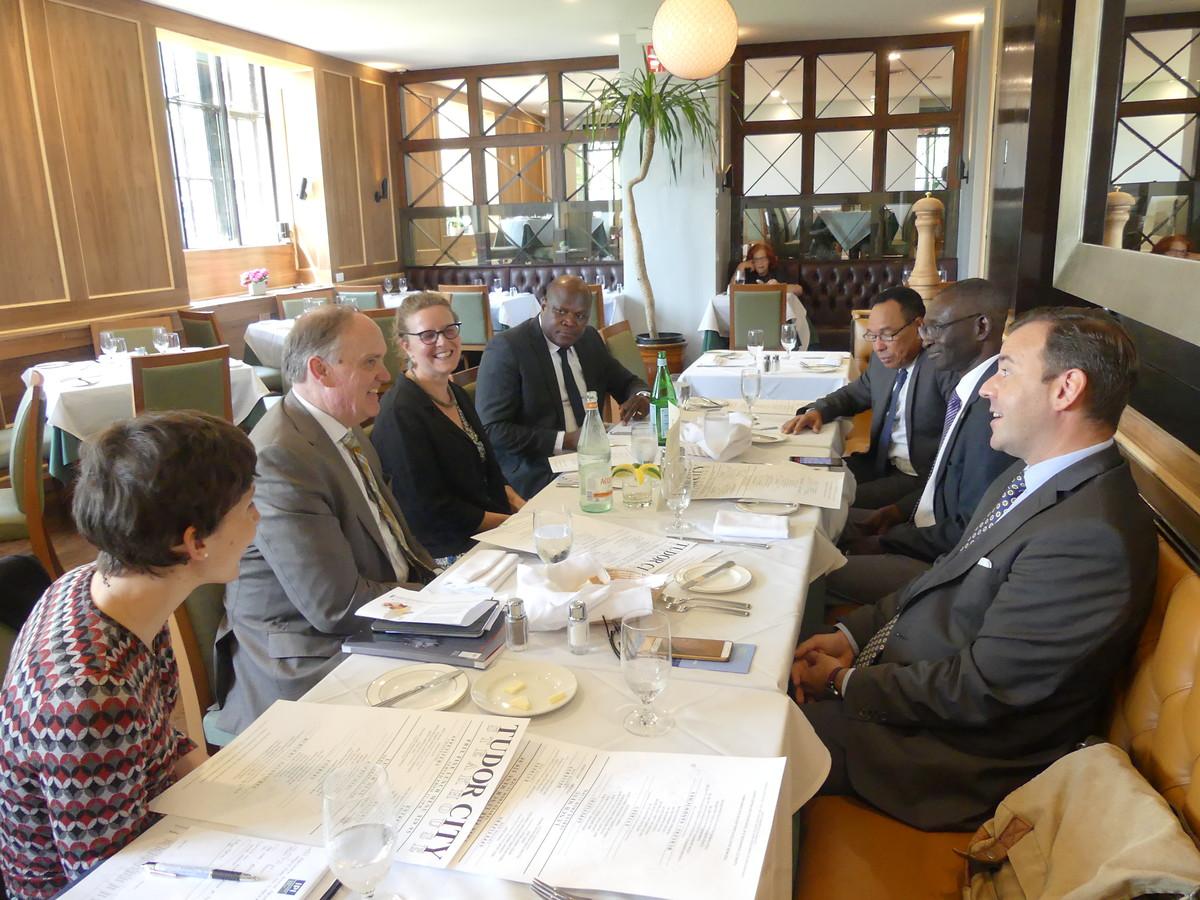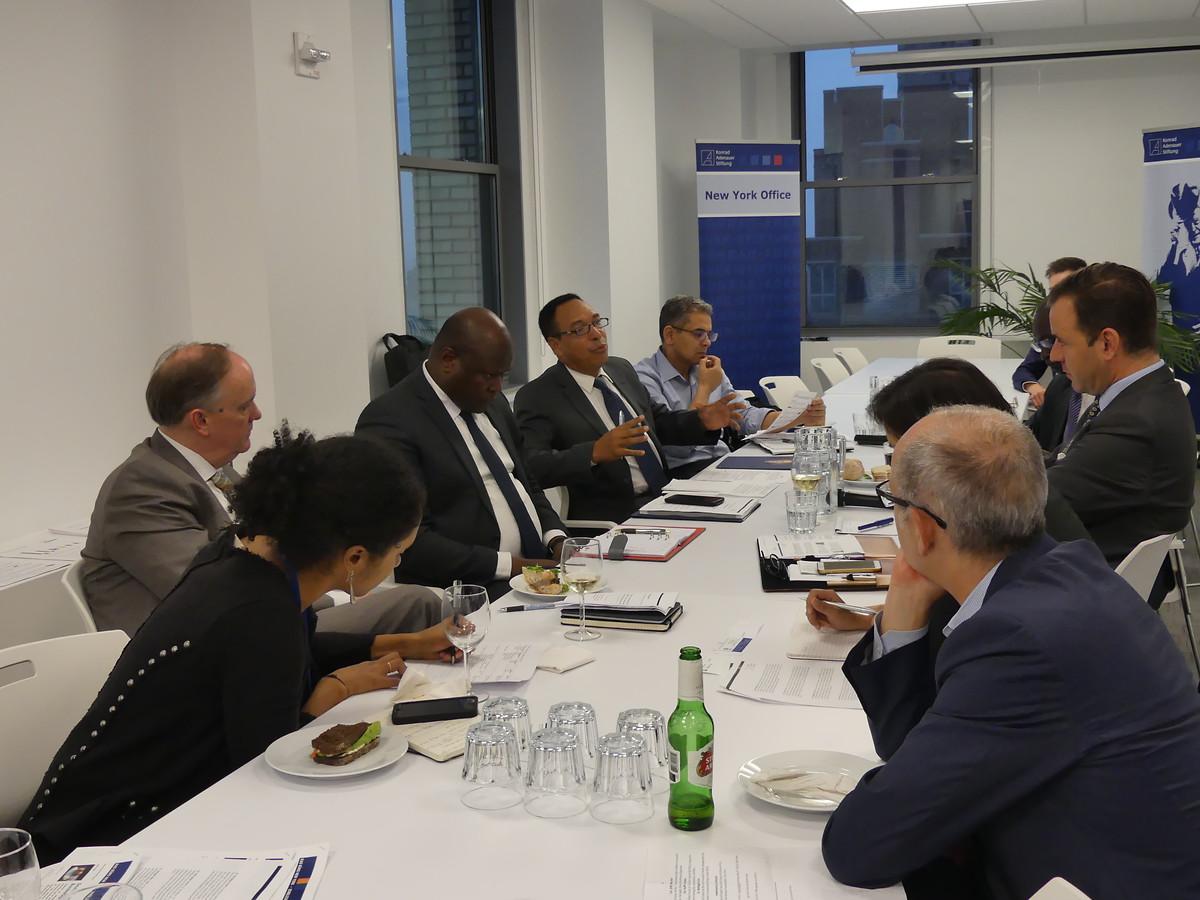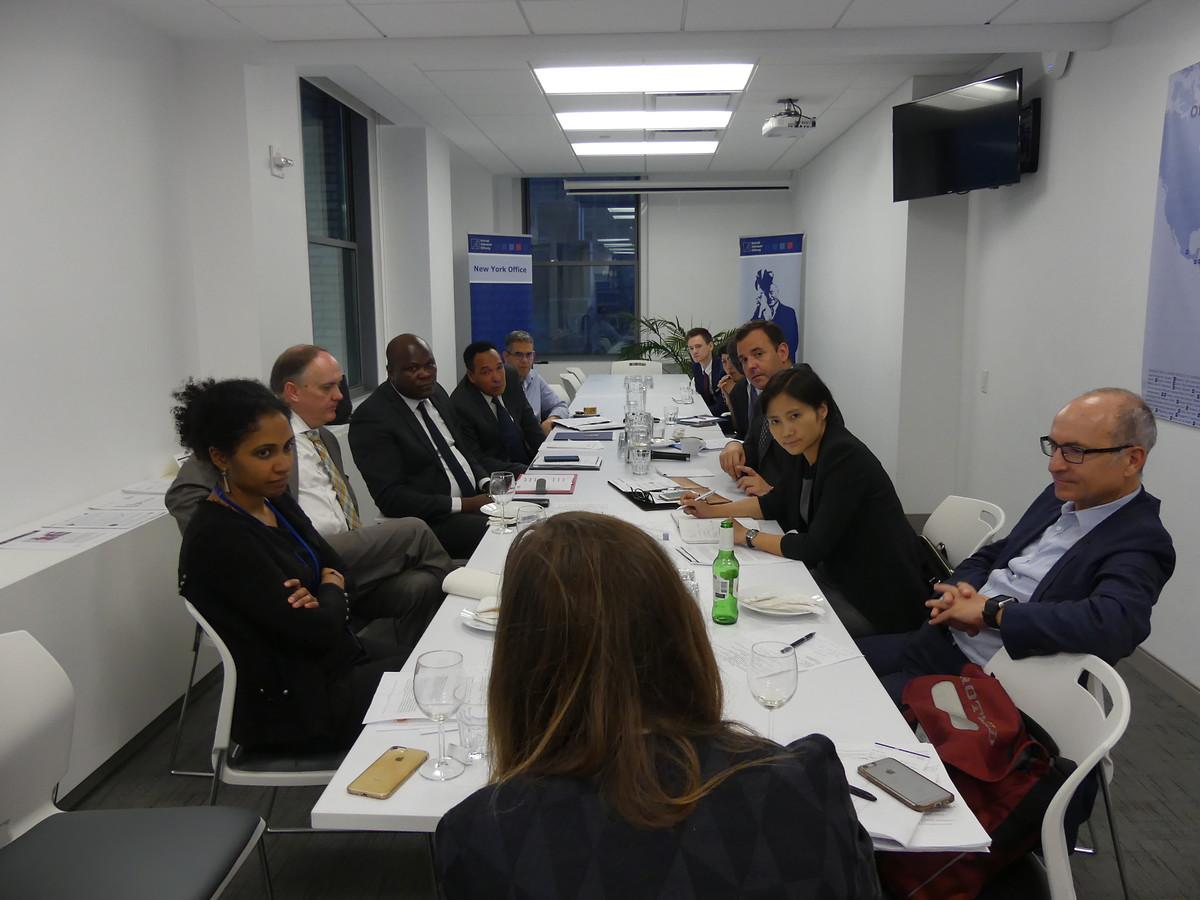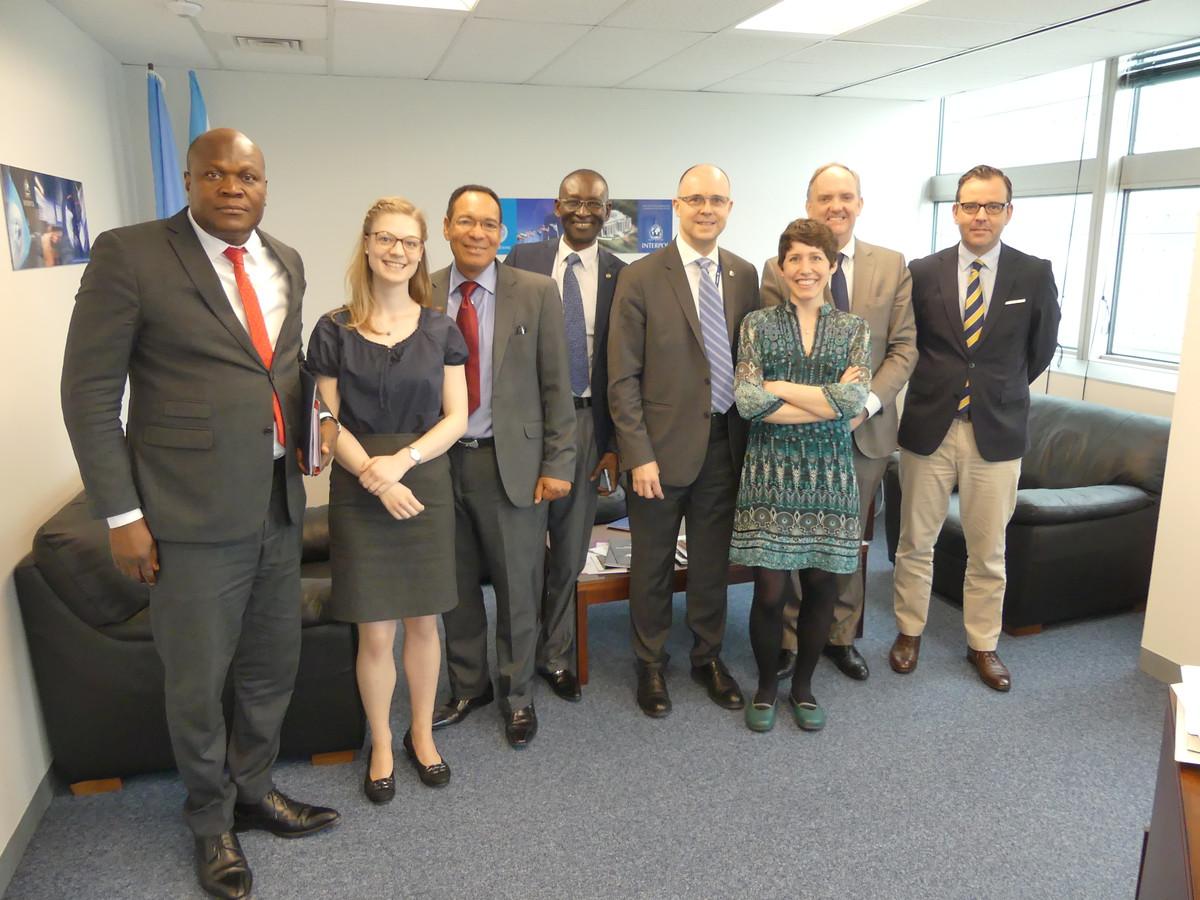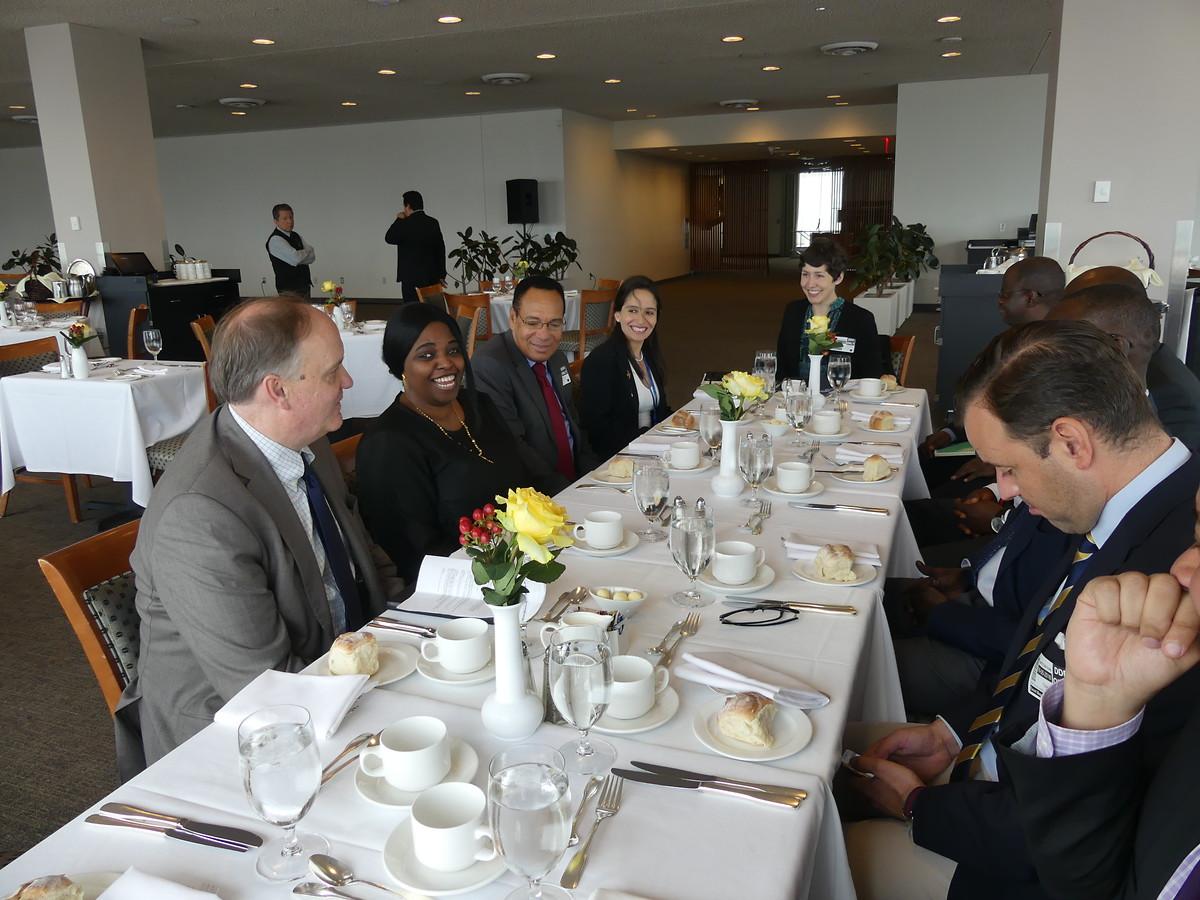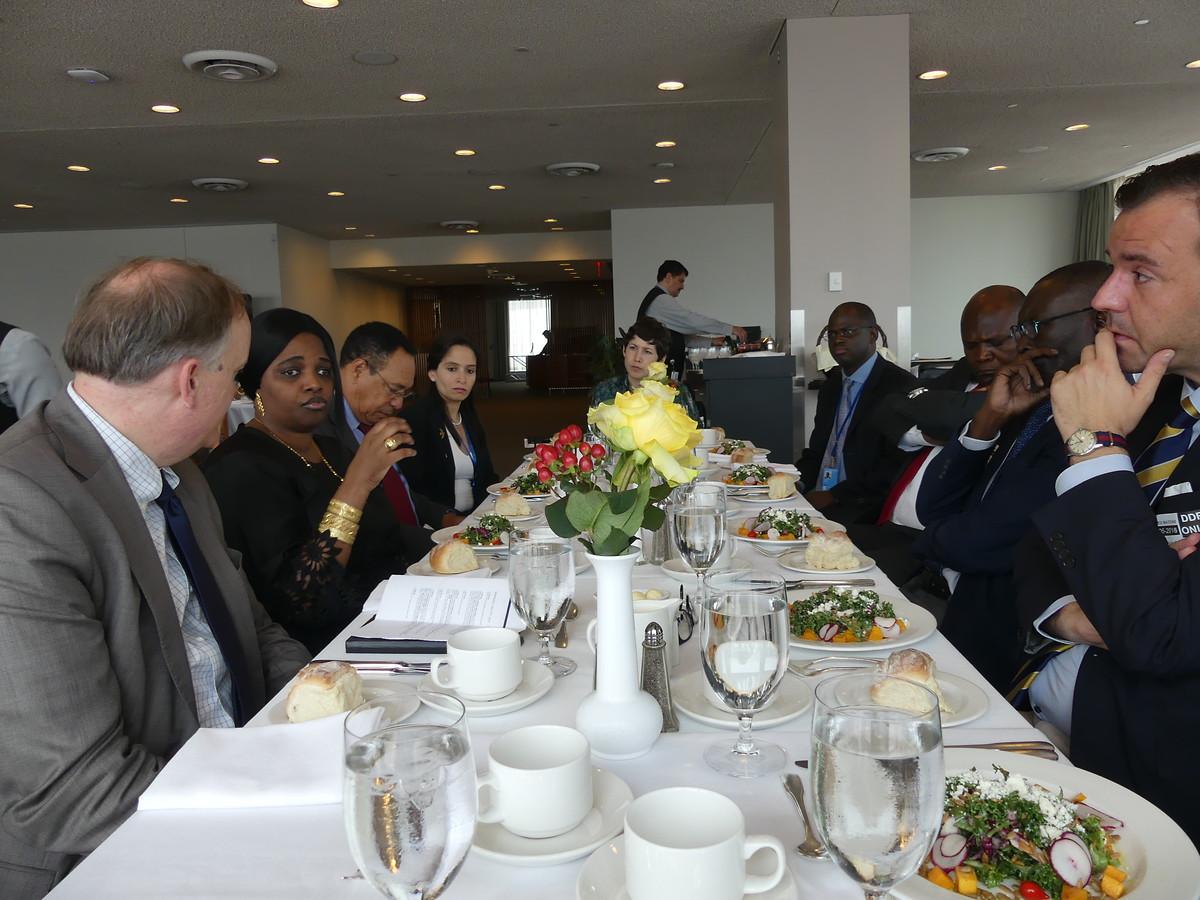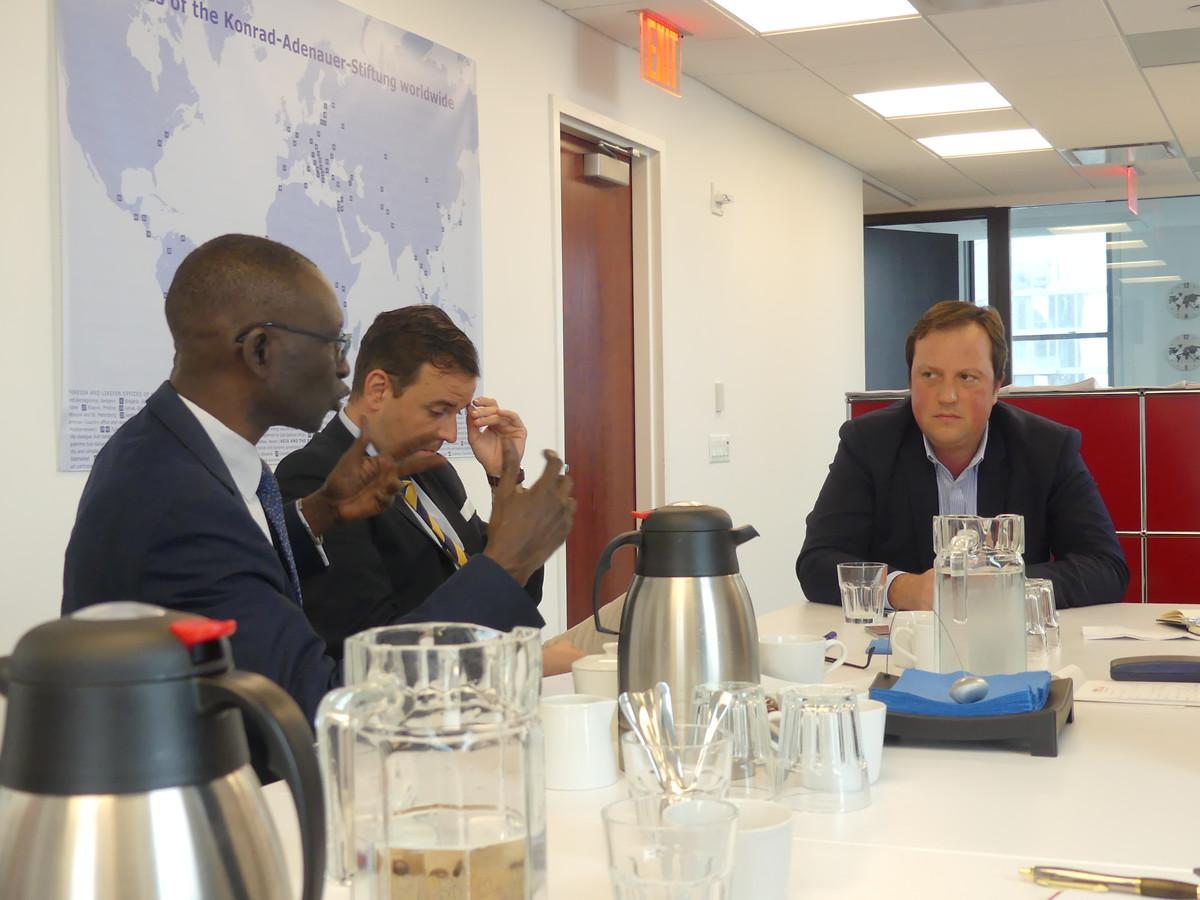Event reports
West Africa is considered one of the areas of the world where the risk of terrorism could increase in the years to come. Countries in which peace is fragile after long-lasting civil wars -such as in the Ivory Coast- offer an attractive terrain for terrorist groups. The same is true for areas characterized by tensions between different religions or any other form of conflict, as well as by poverty. Representatives of the United Nations Development Program (UNDP) confirmed furthermore during the talks that social injustices create an even more fertile breeding ground for violent extremism than poverty. According to a terrorism researcher from Columbia University, who met with the West African experts, the changes we are experiencing to the global order today are fueling the spread of terrorist groups. Enhanced cooperation and strategic partnerships in the fight against terrorism are therefore more important today than ever, as many experts agree.
The following challenges about counter-terrorism were identified during the talks with representatives of various UN organizations and think tanks in New York:
- Terrorist groups are constantly changing, tracking the latest trends and developments requires extensive resources.
- Co-operation in the field of counter-terrorism and prevention requires a high degree of coordination among various UN agencies that have local actors on the ground. Regional organizations have the necessary knowledge and access, but not always the appropriate means. Sometimes competition arises between different actors in the field, which is not conductive to the actual goal.
- Not all member states always fulfill their commitments in the area of terrorism prevention. However, it is clear that prevention is the most efficient way to stop violent extremism in its early stages.
- The most effective strategy is to tackle the root of the problem: in peaceful, economically prosperous and tolerant societies, violent extremism has no chance of gaining a foothold.
- The “whole-of-society approach” has been mentioned several times- which implies that at all levels of society and the state, it is necessary to tackle the problem of successfully counteracting the spread of terrorist groups. Some examples include activities to strengthen the rule of law, intensive involvement of civil society and functional cooperation with religious, media and social media representatives.
- Development and security efforts can complement each other, but it is necessary to separate them clearly.
- Activities that promote social cohesion meant to act against extremism do not necessarily have to be equipped with a security policy component. The promotion of social cohesion alone can have a high preventative effect.
- Raising awareness for the problem must also happen at the local level and in schools.
- The experts were particularly unanimous on one point: approaches that focus exclusively on military security, offer no medium or long-term solutions.
More information on the dialogue program
From 13. to 16. May 2018 the following individuals participated in the „Violent Extremism as a threat to Global Security and Development: Counter strategies for Western Africa“ dialogue program launched by KAS New York in cooperation with the Sub-Saharan African Regional Security Dialogue KAS program (see more under "On Topic"):
In addition to the dialogue, there was also a discussion in the KAS office on “Partners in Security Building in West Africa- UN, EU and the G5 Forces” in which various experts from the United Nations field participated.



